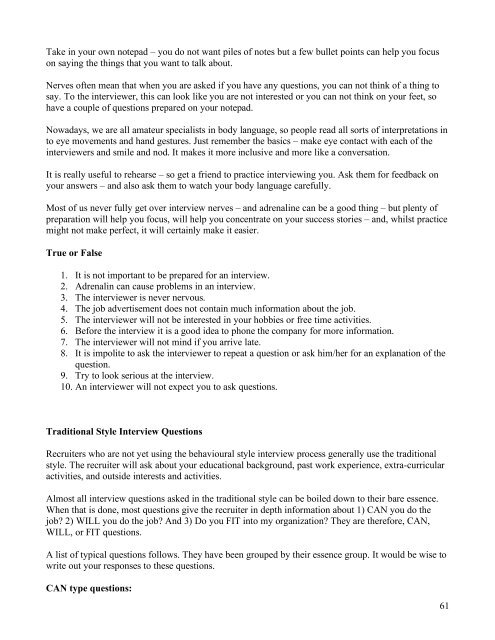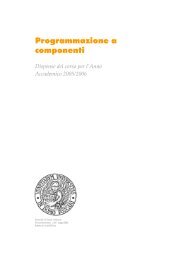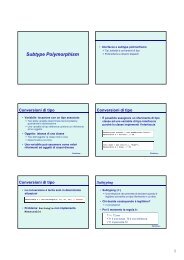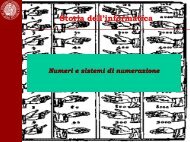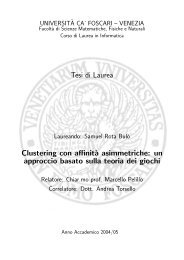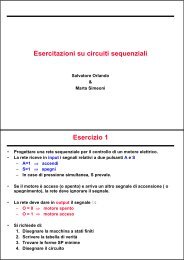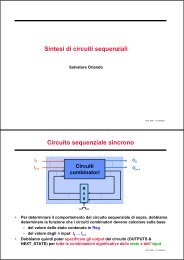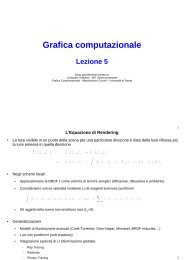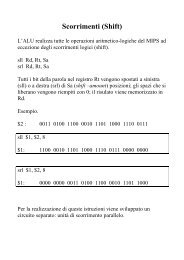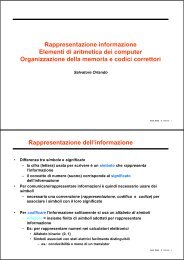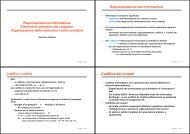Foscari - Dipartimento di Scienze Ambientali, Informatica e Statistica
Foscari - Dipartimento di Scienze Ambientali, Informatica e Statistica
Foscari - Dipartimento di Scienze Ambientali, Informatica e Statistica
Create successful ePaper yourself
Turn your PDF publications into a flip-book with our unique Google optimized e-Paper software.
Take in your own notepad – you do not want piles of notes but a few bullet points can help you focus<br />
on saying the things that you want to talk about.<br />
Nerves often mean that when you are asked if you have any questions, you can not think of a thing to<br />
say. To the interviewer, this can look like you are not interested or you can not think on your feet, so<br />
have a couple of questions prepared on your notepad.<br />
Nowadays, we are all amateur specialists in body language, so people read all sorts of interpretations in<br />
to eye movements and hand gestures. Just remember the basics – make eye contact with each of the<br />
interviewers and smile and nod. It makes it more inclusive and more like a conversation.<br />
It is really useful to rehearse – so get a friend to practice interviewing you. Ask them for feedback on<br />
your answers – and also ask them to watch your body language carefully.<br />
Most of us never fully get over interview nerves – and adrenaline can be a good thing – but plenty of<br />
preparation will help you focus, will help you concentrate on your success stories – and, whilst practice<br />
might not make perfect, it will certainly make it easier.<br />
True or False<br />
1. It is not important to be prepared for an interview.<br />
2. Adrenalin can cause problems in an interview.<br />
3. The interviewer is never nervous.<br />
4. The job advertisement does not contain much information about the job.<br />
5. The interviewer will not be interested in your hobbies or free time activities.<br />
6. Before the interview it is a good idea to phone the company for more information.<br />
7. The interviewer will not mind if you arrive late.<br />
8. It is impolite to ask the interviewer to repeat a question or ask him/her for an explanation of the<br />
question.<br />
9. Try to look serious at the interview.<br />
10. An interviewer will not expect you to ask questions.<br />
Tra<strong>di</strong>tional Style Interview Questions<br />
Recruiters who are not yet using the behavioural style interview process generally use the tra<strong>di</strong>tional<br />
style. The recruiter will ask about your educational background, past work experience, extra-curricular<br />
activities, and outside interests and activities.<br />
Almost all interview questions asked in the tra<strong>di</strong>tional style can be boiled down to their bare essence.<br />
When that is done, most questions give the recruiter in depth information about 1) CAN you do the<br />
job? 2) WILL you do the job? And 3) Do you FIT into my organization? They are therefore, CAN,<br />
WILL, or FIT questions.<br />
A list of typical questions follows. They have been grouped by their essence group. It would be wise to<br />
write out your responses to these questions.<br />
CAN type questions:<br />
61


